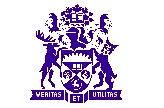|
|
D. Electrical Engineering and Law Option
Admission
Before entering the combined BESc/LLB degree program, students must have completed the first
three years of the Electrical Engineering program at Western (or equivalent). In addition to applying
for the combined degree program through the Office of the Associate Dean - Academic of the Faculty
of Engineering, students must also make a separate application to the Faculty of Law for admission
into the LLB program by the published deadline, May 1. In the application to the Law School, the
applicant must indicate that he or she is applying to the combined BESc/LLB program.
Admission Criteria
To be eligible for the combined degree program, students must have completed all the requirements of the first year curriculum in the Faculty of Engineering, and the second and third year program, Option D, in the Department of Electrical and Computer Engineering with either a minimum cumulative weighted average (CWA) of 80% or stand in the top 10% of the class. In addition, the applicant must meet the minimum LSAT requirement established by the Law School Admission Committee for all combined degree programs. Entrance into the combined degree program is competitive and limited.
Progression Standards
Once admitted to the combined program, students are required to maintain a minimum year weighted average of 75% in their Engineering curriculum courses and a B average in their Law courses.
Failure to Meet Progression Standards
A student who fails to meet the combined program progression standards in any year will be requiredto withdraw from the combined program. However, a student who has met the progression standards of either the Engineering or LLB program, will be allowed to proceed to the next year of that program. If the progression standards of both individual programs have been satisfied, the student may continue in either program and may petition the Faculty whose program was not selected for permission to complete that program at a later date. A student who is required to withdraw from the combined program and wishes to pursue either or both of the individual programs, must complete all the degree requirements of the individual program or programs in order to graduate from that program or those programs.
First Year Program
Common first year of Engineering.
Second Year Program
Applied Mathematics 276, Computer Science 037a/b, ECE 205a/b, ECE 231a/b, ECE 233a/b, ECE 235a/b, ECE 236a/b, ECE 240a, ECE 241b, ES 211F/G, MME 234a/b
Third Year Program
Applied Mathematics 376a/b, ECE 330a/b, ECE 331a/b, ECE 332a/b, ECE 333a/b, ECE 336a/b, ECE 339a/b, ECE 370a/b, ECE 375a/b, Statistical Sciences 241a/b, 0.5 non-technical elective.
Selection of the non-technical elective must be approved by the Department Counsellor to satisfy the CEAB requirements of subject matter that deals with central issues, methodologies, and thought processes of the humanities and social sciences. An approved list can be found on the Engineering website.
Fourth Year Program
First year Law curriculum. No courses outside Law may be taken during this year.
Fifth and Sixth Year Programs
In years five and six students must complete the following requirements for the LLB: The two compulsory upper-year Law courses At least three Law core-group courses (must include Law 438) Additional Law courses equaling at least 25 credit hours (must include one of the optional courses listed below under “The Impact of Technology on Society”) One Law course must have an essay requirement of at least two credit hours.
Fulfillment of the Faculty of Engineering requirement of courses that expose students to the impact
of technology on society, ethical issues, and economics must be taken as follows:
- Ethical Issues: Law 418 “Legal Ethics & Professionalism” – part of the first year Law
curriculum. - The Impact of Technology on Society: One of: Law 323 “Biotechnology Law”, Law 324
“Advanced Issues in Technology Law”, Law 413 “Media Law”, Law 432 “Advanced
Intellectual Property”, Law 452 “Information Law”, Law 453 “Internet Law”, Law 462
“Intellectual Property”, Law 474 “International Protection of Intellectual Property”, or Law
468 “Advanced Patent Law”. In addition, there may be a Selected Topics course offered
which may be approved on an individual basis. - Economics: Law 438 “Income Taxation”.
Exchange Programs
Students enrolled in the combined program are not eligible for an exchange program with the Faculty of Engineering; however, they may be eligible for an exchange through the Faculty of Law in Year Five or Six. This will require advanced planning with both faculties.
|
|

